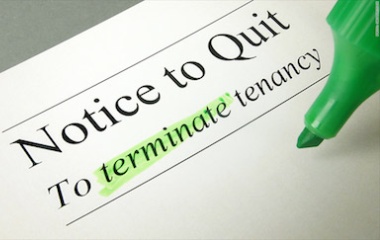
“Everything goes according to the custom of the land (Bava Metzia 83a). As much as lawyers may try, it is impossible to contract for each and every eventuality when entering into an agreement. In many places of employment one does not even sign a contract. Despite best intentions an employee and employer may have different expectations as to the exact requirements of a job. Unless explicitly agreed otherwise, it is the custom of the land that rules[1].
Owing to the fact that in monetary matters “one can make conditions against the laws of the Torah” this is true even if the custom goes “against” Torah law. It is almost unheard of today for a worker to get paid daily despite the fact that the Torah is very clear that an employee at will must be paid almost immediately after finishing a day of work.
“One who hires workers and tells them to come early or stay late in a place where it is not the custom to arrive early or stay late, he may not force them” (Bava Metzia 83a). In Talmudic times it was common to begin work at the crack of dawn and work until sunset. Yet unless such working hours are the norm, one can’t tell an employee on the first day of work that here we come in at daybreak. Today, that would mean that for many jobs one cannot change the 9 to 5 workday without making such clear during the interview[2].
That one can’t spring new working conditions without consent is so obvious the Gemara questions the need to even mention it. The Gemara explains that the Mishna refers to a case where one offered his workers higher pay than the norm for the job[3]. His claim that the higher pay was an obvious indicator of longer hours expected is rejected; the employee can argue that he assumed the higher pay is because he is a better worker. It really is best to clarify expectations before one starts a job.
With no official lunch hour in the ancient workplace – but with a need to eat – the general custom was for the employer to provide lunch. (Today it is common for those working late to have dinner provided for them.) But there is lunch and there is lunch.
“It once happened that Rabbi Yochanan ben Matya said to his son, ‘Go out and hire laborers for us.’ He went and committed to providing them with food. And when he came to his father, he said to him, ‘My son, even if you made for them a meal as [befitting] Solomon in his time, you would not have fulfilled your obligation toward them, for they are children of Avraham, Yitzhak, and Ya'akov. Rather, before they begin labor, go and say to them, on the condition that the only [claim] you have on me is for bread and beans” (Bava Metzia 83a).
Most cognizant of the sage and Sages’ advice to “say little and do much”, Rabbi Yochanan ben Matya did not want there to be any misunderstanding as to the perks of the job. Moreover, he did not see his employees as an object, useful insofar as they help one make more money, but as descendants of Avraham, Yitzchak and Yaakov. Imagine how people would conduct business if they saw their employees, suppliers, competitors and clients as the children of Avraham, Yitzchak and Yaakov. While one may treat his employees with great respect as a matter of self-interest such an approach, while better than many alternatives, does little to imbue a workplace with holiness. And seeing people as the children of Avraham, Yitzchak and Yaakov means that it is concern for their physical needs that must be primary[4].
While this is a beautiful sentiment, Rabbi Shimon ben Gamliel argues that regarding lunch at least such a disclaimer is not necessary as “all is according to the custom of the land” and the employer only need provide food as is customary.
While what an employer gives his employee for lunch may be dependent on local custom, this is only for non-agricultural workers. For those who work on the farm with food surrounding us the Torah itself grants the employee the right to eat. If one is forbidden to muzzle an animal while it plows in the field, how much more must we permit a human being to eat while working in the fields?
Much of the seventh chapter of Bava Metzia discusses the details of this law. Who exactly qualifies, when and where one can eat, what to do if tithes have not been taken, negotiating these rights away, etc. Regarding how much one can eat, the Mishna (Bava Metzia 92a) records a fascinating dispute. The Sages allow one to eat “even a dinar’s” worth of food even if one earns less than that in actual wages so that his benefits are worth more than his base salary. Rabbi Eliezer ben Chisma forbids an employee from eating such excessive amounts. A second group of Sages agrees that such is allowed - the right to eat is not conscribed – however we advise the worker that such is not a wise thing to do.
Taking unlimited advantage of Torah’s permission to eat is a sure way to find oneself out of work. While in theory one's work can be so wonderful that it is worth it for the employer to keep even those who have a large expense account, it is unlikely one would even have a chance to demonstrate such.
While this debate would seem to have little practical application – how many people could eat that much even if they tried – it reflects a larger issue on how to best deal with those who are their own worst enemies. The tanna kamma, first group of Sages, are happy to let one learn the results of one’s foolish actions the hard way. The best way to learn not to repeat a mistake is to experience the impact of that mistake.
Rav Eliezer ben Chisma takes the opposite approach, arguing that we must legislate against such self-defeating behavior, hoping to prevent mistakes before they happen. Such, however, is not realistic and there is no way to pass preventive legislation to guard against all forms of stupidity. Thus the halacha follows the third view, that of the Chachamim, that we let workers eat as much as they like – but we warn them that doing so, while it may work in the short term, is most likely to be a bad long term strategy. Rules have their place[5], but educating people so that such rules are not needed often yields much better results.
[1] Figuring out the custom of the land in our large cities with varied industries is not as simple as it was in a Talmudic town or village. With each workplace having its own and at times most distinct culture, presumably it is the specific custom of each company that is determinative.
[2] While the employer can’t spring unexpected conditions on his workers neither can the employee. With work often beginning before dawn one did not have the opportunity to daven before work. But while davening with a minyan is ideal and taking one’s time to daven is most praiseworthy, this is not the case during working hours. The Rabbis instituted a series of laws limiting the amount one may daven and insisting it be done at the place of employment.
[3] All one needs to do to verify that employers have not changed much over the years is to walk into a major law firm or investment bank say at 10:00pm pretty much any night of the week
[4] Rav Yisrael Salanter, the founder of the Mussar movement, is quoted as having said that most people worry about their own material well-being and the spiritual well-being of others, but it is the opposite that we should be doing.
[5] The entire field of financial planning is one where we must balance legislation and education. We would not want rules mandating how much one must save or how much of their net worth they may invest in a hedge fund, but to rely on education alone would likely be disastrous, with even more people reaching retirement age with little or no assets. This is the basis of such programs as the Canada Pension Plan where like it or not money is taken from our pay cheque to be given back to us many years down the road.



